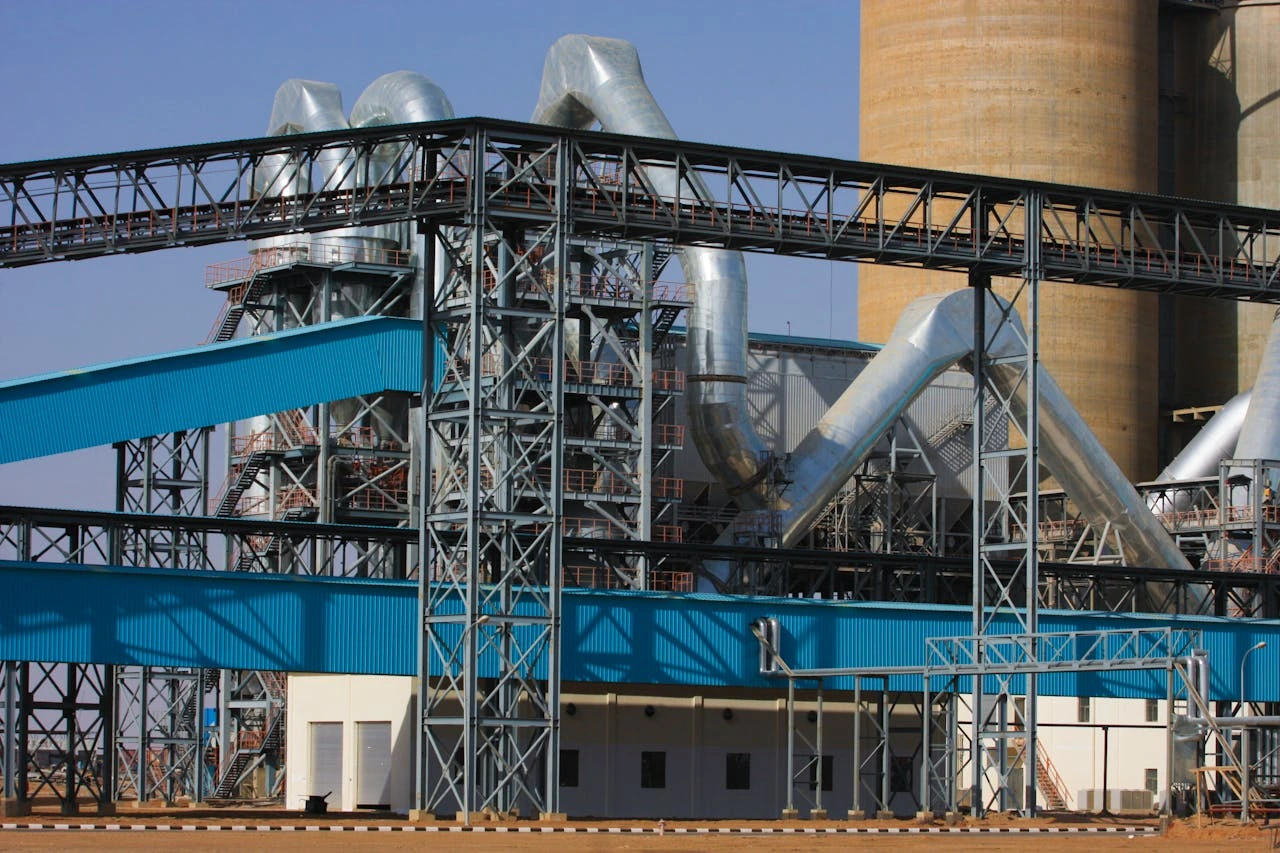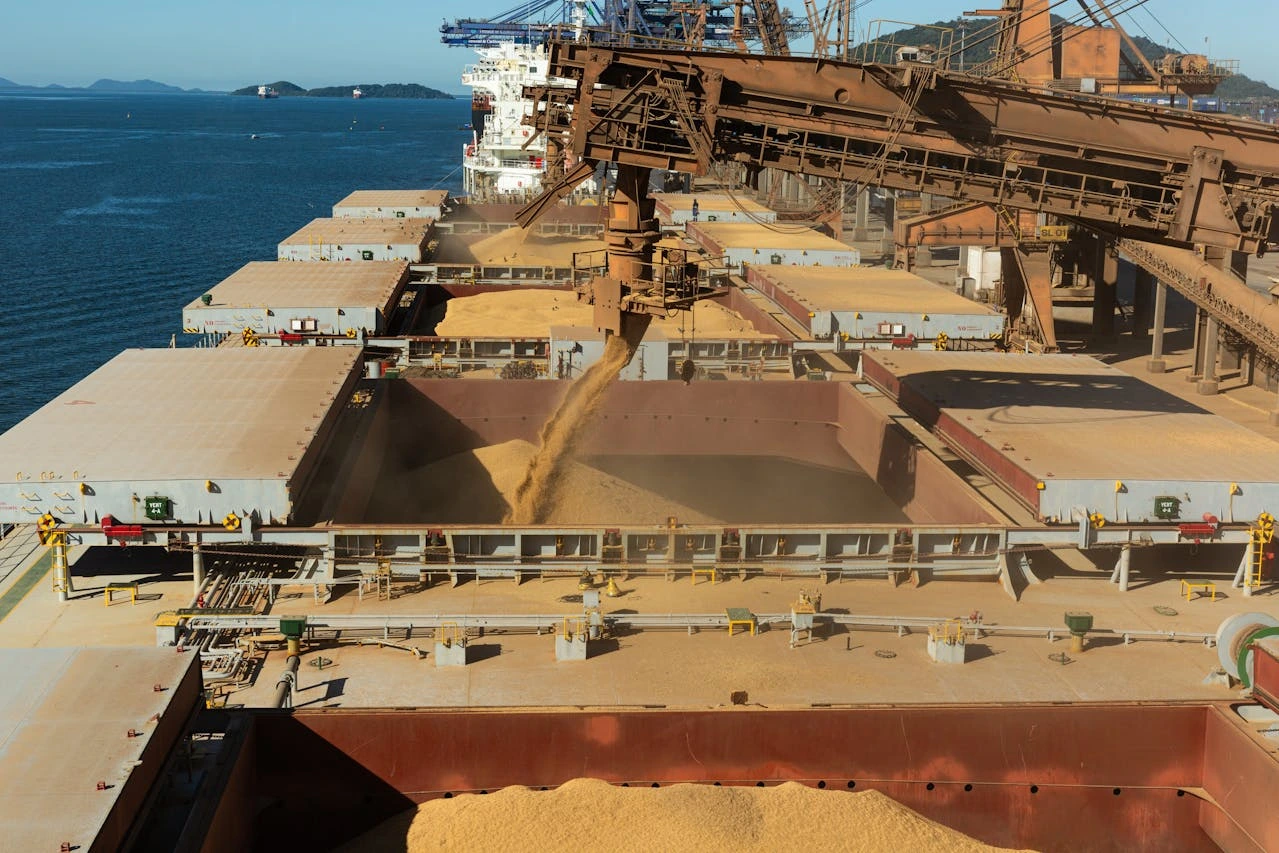Bulk transport refers to movement of large quantities of goods, often raw materials or unpackaged products. It plays a pivotal role in the global supply chain.
As industry experts, JCS Projects offers a variety of bulk logistics solutions. We have decades of experience handling bulk and oversized loads. Request your bulk transport quote today!
In this guide, we’ll explore:
- What is Bulk Transport?
- Types of Bulk Transport
- How Bulk Transport Works?
- Modes of Bulk Transport
- Equipment Used in Bulk Transport
- Safety and Compliance in Bulk Transport
- Benefits of Bulk Transport
- Industries Relying on Bulk Transport
- How to Choose the Right Bulk Transport Provider?
What is Bulk Transport?
Bulk transport, as the name suggests, refers to the movement of bulk or large volumes of homogeneous cargo. These are often unpackaged materials that are loaded directly into transport vehicles.
This method is best for moving commodities such as:
- Coal
- Grains
- Liquids
- Chemicals
- Minerals
- Construction materials
Types of Bulk Transportation
These are some of the primary types of bulk logistics:
Dry Bulk Transportation
Dry bulk transport involves free-flowing solid materials transported in large quantities without packaging. These dry materials are commonly handled using bulk carriers, hopper trucks, or railcars.
Common dry bulk commodities include:
- Grains (wheat, corn, soybeans)
- Coal and coke
- Cement
- Sand and gravel
- Fertilisers
- Salt and sugar
Liquid Bulk Transportation
Liquid bulk transport is the process of transporting fluids and chemicals in specialised tankers. The volatile nature of these requires advanced safety protocols due to volatility and contamination risks.
Examples of liquid bulk cargo:
- Crude oil
- Liquid fertilisers
- Milk and edible oils
- Industrial chemicals
- Petroleum derivatives
Pneumatic Bulk Transportation
In pneumatic bulk transport, dry granular or powdered materials are transported using pressurised air systems. Materials like cement are moved through pipelines into tankers or silos.
These are the common transported pneumatic bulk materials: :
- Cement powder
- Flour
- Plastic pellets
- Lime
How Bulk Transport Works: A Step-by-Step Process
Bulk transport moves loose materials (mostly unpackaged) efficiently, whether it's grain pouring into a ship's hold or fuel flowing through pipelines.
Here's how bulk transport works:
1. Pre-Transport Preparation
- Material Testing:
- Labs check moisture content (14% or below for grains to prevent spoilage) and flowability. Powders like cement are tested for clumping risks.
- Equipment Matching:
- Dry bulk: Open-top hoppers or sealed trailers are used for gravel and sugar, respectively.
- Liquids: Stainless steel tanks and food-grade liners are used for chemicals and milk, respectively.
- Route Planning:
- Account for weight limits (e.g., 44-tonne UK truck limits) and overhead clearances (like 5m height restrictions).
2. Loading Phase
- Dry Bulk:
- Front-end loaders or conveyor belts fill hoppers, a 30,000-tonne grain ship loads in 24-48 hours using industrial spouts.
- Liquids:
- Pumps transfer fuel at 1,500 litres/minute through sealed hoses to prevent vapor leaks.
- Pneumatic:
- Blowers push plastic pellets through pipes at 20 m/s, with filters capturing dust
3. In Transit
- Monitoring:
- Grain temperatures checked every 4 hours to spot hotspots
- Tankers track pressure changes that could indicate leaks
- Safety Protocols:
- Coal trucks use tarps to prevent 15%+ material loss from wind
- Chemical tankers have emergency shutoff valves
4. Unloading
- Dry Bulk:
- Hoppers use gravity discharge or vibration-assisted flow for sticky materials.
- Liquids:
- Food-grade oils are pumped out at controlled speeds to preserve quality.
- Pneumatic:
- Reverse airflow systems "backflush" pipes to recover 99% of powders.
5. Post-Transport
- Equipment Cleaning:
- Cement residue removed with compressed air blasts
- Chemical tanks undergo 3-stage washing (rinse, caustic wash, steam)
- Documentation:
- Weight tickets, contamination checks, and chain-of-custody logs are filed.

Looking for reliable bulk transportation services? JCS Projects delivers expert bulk shipping solutions, from grains and powders to liquid cargo, with guaranteed on-time delivery, real-time tracking, and custom handling. Contact now!
Modes of Bulk Transport
These are some of the common modes of bulk transportation:
Bulk Trucks
Bulk trucks are the most common mode to transport domestic bulk movements. They can handle a wide range of materials and are ideal for short-haul deliveries.
Railcars
Rail is an affordable transport mode for high-volume shipments over long distances. Hopper cars and tank cars are commonly used for dry and liquid bulk, respectively.
Bulk Vessels
Maritime transport is commonly used for shipping large volumes of material for international shipments.
Bulk carriers are classified based on size:
- Handysize
- Supramax
- Panamax
- Capesize
Pipelines
Pipelines are best for transporting liquid or gaseous products on a continuous basis. Pipelines offer great safety for fuels, chemicals, and natural gas.
Key Equipment Used in Bulk Transport
- Silos and Hoppers For storing bulk materials on a short-term basis.
- Conveyor Belts & Pneumatic Systems To move materials with minimal human contact.
- Bulk Tankers & Trailers Custom-built vehicles for carrying dry or liquid commodities.
- Discharge Systems Including rotary valves, screw conveyors, and fluidized beds.
Safety and Compliance in Bulk Shipping
Safety is paramount. Bulk transportation requires strict adherence to:
- Hazardous Material Regulations (HAZMAT)
- Environmental Protection Standards
- Sanitation and Contamination Controls
- Temperature and Pressure Monitoring (Liquids)
At JCS Projects, we rigorously follow all local and international regulations for bulk transport operations. Complying with these laws helps prevent leaks, spills, or cross-contamination.
Benefits of Bulk Transport Logistics
These are the benefits of bulk transportation logistics:
1. Cost Efficiency
Transporting materials in bulk reduces cost per unit due to reduced packaging and higher payload.
2. Environmental Sustainability
Bulk shipping boosts environmental sustainability by lowering carbon emission. It is best for reducing packaging waste and optimises load density, resulting in fewer trips.
3. Operational Scalability
Bulk methods remove the hassle of palletizing products by accommodating large-volume shipments.
4. Reduced Handling
Minimised manual labour lowers the damage or contamination risk during transit.
Industries Relying on Bulk Transport
Today, almost every industry benefits from bulk transportation. These are some of the top industries that benefit the most:
- Agriculture: Grain, feed, and fertilizer logistics.
- Construction: Cement, aggregate, and sand.
- Oil & Gas: Crude, fuels, and petrochemicals.
- Food & Beverage: Flour, sugar, milk, and juices.
- Mining: Coal, iron ore, and industrial minerals.
How to Choose the Right Bulk Transportation Partner?
Choosing a reliable logistics partner helps safe handling, timely delivery, and cost control. To make sure, look for bulk logistics companies with:
- Fleet variety: Hoppers, tankers, pneumatic
- Regulatory compliance certifications: Fully licensed for HAZMAT, food-grade, and environmental standards
- Advanced tracking systems: Real-time GPS and sensor-based monitoring for load security and performance
- Customisable logistics plans: Tailored transport strategies aligned with your supply chain goals
Why JCS Projects for Bulk Transport?
If you want to move massive, complex, or time-sensitive bulk cargo, JCS Projects delivers solutions where others can’t. Our expert bulk movers handle almost any type of challenging shipments, from oil rig equipment from Iraq to wind turbine blades to Scotland.
With decades of experience, we combine engineering perfection with global logistics mastery to keep your bulk materials safe during transport.
Key Advantages:
- Bespoke Heavy-Lift Capability
- AN-124 charters for urgent air cargo
- Million-kilogram sea shipments managed end-to-end
- Custom airflow systems for delicate powders
- No-Surprises Compliance
- Permits secured in 50% less time than industry average
- Hazardous material specialists (ADR/IMDG certified)
- Political border clearance experts
- 24/7 Crisis Ready
Final Thoughts
Bulk transportation plays an integral role in today’s logistics. By using the services of a reliable bulk transport provider, businesses can streamline their supply chain, minimise costs, and always deliver the materials on time.
If you are looking for a cost-effective, experienced and friendly bulk transportor, feel free to get a quote or contact our team at JCS Projects for help.
